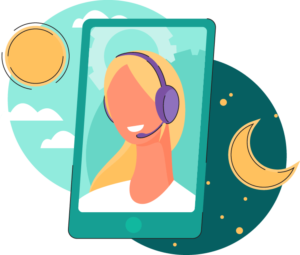Emergency Mental Health Resources
Mental Health emergencies usually involve the risk of potentially lethal self-harm or suicide. Quite often, if someone is in the midst of a severe emotional crisis, they will not willingly go to an emergency room or seek immediate professional help. These situations require urgent treatment by trained professionals. Below are some helpful resources to contact in the event of a mental health emergency.
In the US
If you reside in the US and require immediate medical attention you should call 911. They can and will dispatch someone to your location.
There is also the National Suicide Prevention Lifeline which can be reached at 988 or you can engage in a live chat.
You can also communicate by text with a crisis counselor and receive free 24/7 support from the Crisis Text Line by texting “Home” to 741741.
Suicide Prevention Hotlines Outside the US
- Australia: 13 11 14
- Austria: 017133374
- Canada 1-833-456-4566
- China: 010-8295-1332
- France: 01 46 21 46 46
- Germany 0800 111 0 111
- India: 1800-5990019
- Italy: 02 2327 2327
- New Zealand: 0800 543 354
- United Kingdom: 800 689 5652

Non-Emergent Support
If the person in need of help is not at risk of causing any kind of immediate physical harm, either to themselves or those around them, they are encouraged to explore their options for nearby mental health counselors or online therapy providers.
It is important to be proactive in seeking guidance and support from mental health professionals, as this can help to prevent urgent situations in the future. The important thing is to take the first step towards seeking help from a professional.